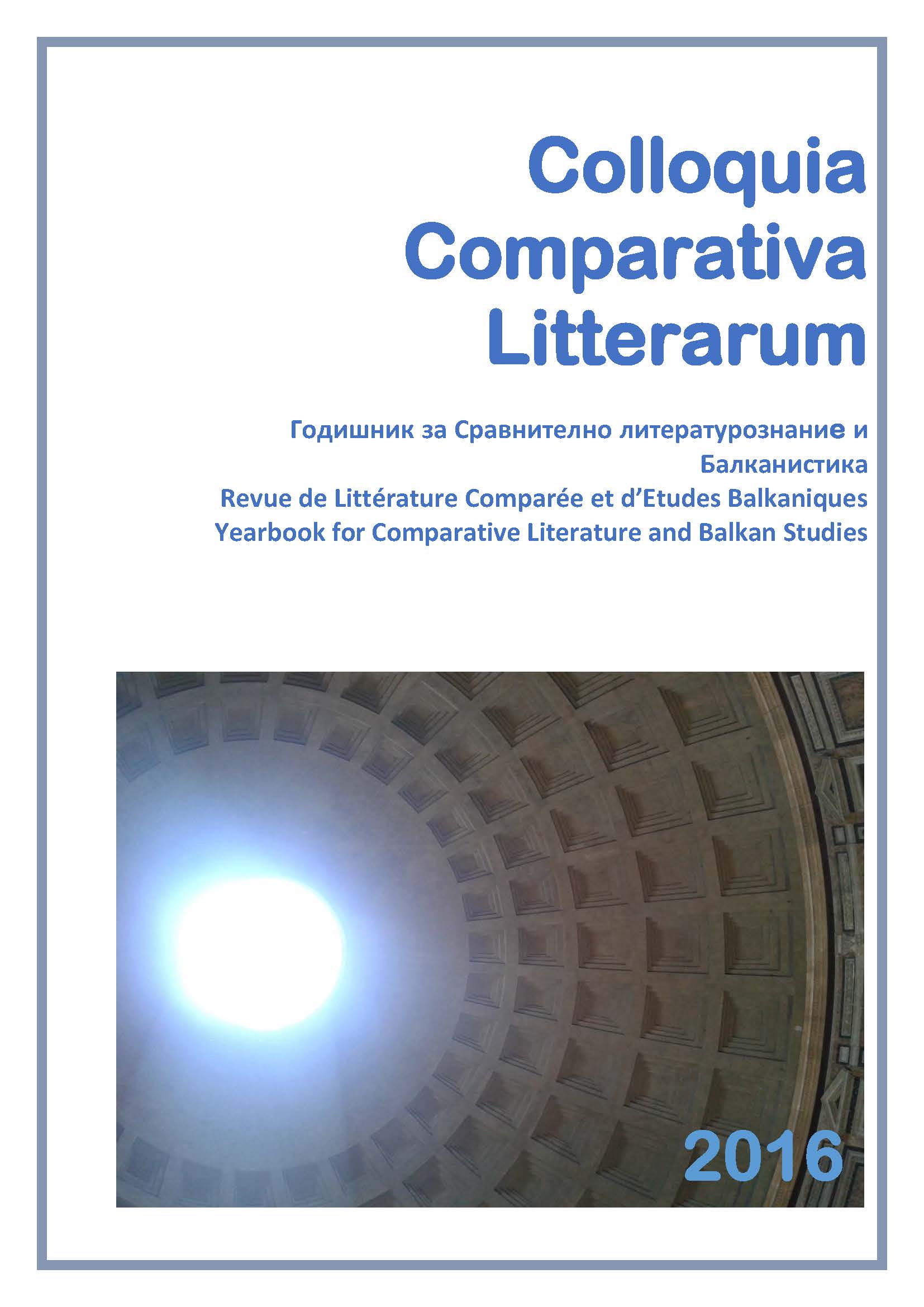Как да компенсираме загубата на красивото?Непознати сравнения от историята на европейския натурализъм
How to Compensate for the Loss of Beauty?Unfamiliar Comparisons from the History of European Naturalism
Author(s): Roumiana L. StantchevaSubject(s): Language and Literature Studies, Studies of Literature, Comparative Study of Literature, Bulgarian Literature, French Literature, Greek Literature, Romanian Literature, Philology, Translation Studies
Published by: Софийски университет »Св. Климент Охридски«
Keywords: European Literatures; Gheorghi P. Stamatov; Barbu Delavrancea; Grigorios Xenopoulos; Emile Zola; materialistic perception as a criterion of literary value; objective narration; triangular pattern in C
Summary/Abstract: This article examines Southeast-European stories and novels, where for the first time a rejection of the Beautiful in favour of scientific perception can be observed: "Dimo the Orderly" by Gheorghi P. Stamatov (1869-1942), "Parasites" by Barbu Delavrancea (1858-1918), "Rich and Poor" by Grigorios Xenopoulos (1867-1951) are compared with Emile Zola’s (1840-1902) "Nana". These similar themes and topics (the class division of society, the interest in the poor, heredity, pathology, symbolized by money, illness, and death) provide arguments in order to emphasize the existence of a common "system of European values" in a much broader perimeter than that of Western literatures.Thanks to the ideas of literary Naturalism, the materialistic view of life, scientifically legitimized during the Nineteenth century, obtained the credibility to be seen as a literary value. From a literary perspective, we are faced with an objective position of the narrator, adopted by writers (at the expense of the Beautiful, considered until that point as an intrinsic aesthetic value and essential to the art).This article applied the Triangular Pattern, introduced by the author, which implies a constant referring to the phenomena, common to European literatures and does not recommend that scholars remain incarcerated within the study of parallels between Southeаst-European literatures.
Journal: Colloquia Comparativa Litterarum
- Issue Year: 2016
- Issue No: 1
- Page Range: 55-70
- Page Count: 15
- Language: Bulgarian

